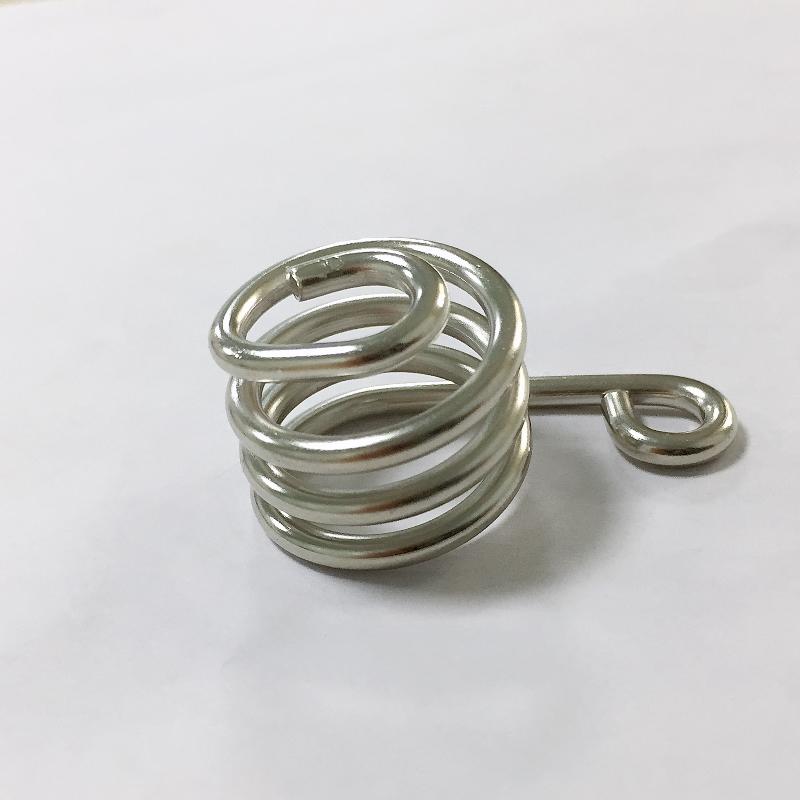What Materials can Compression Springs be Made of?
2025-10-28
In our work at Saifu Vietnam Company Limited, we manufacture high-precision springs for a wide range of industries and applications. One of the most important decisions we make in our factory is selecting the proper material for each spring's design. The material choice influences fatigue life, corrosion resistance, weight, cost, and overall performance of the springs. In this article we explore what materials compression springs can be made of, why each material matters, and how our factory applies this knowledge to deliver reliable products.
Steel Alloys for High Performance Springs
Our standard range of springs often uses carbon steel or alloy steel. These materials offer excellent strength and fatigue resistance at moderate cost. At Saifu Vietnam Company Limited our engineers select alloy steels when the springs require high dynamic loads, repeated cycles and robust performance. These steels can be heat treated to enhance their yield strength and fatigue resistance. In our factory we routinely specify wire diameters, coil diameters and surface finishes to match material properties and ensure consistency in our springs.
Stainless Steel for Corrosion-Resistant Spring Solutions
When springs are used in corrosive environments or where hygiene and cleanliness matter, our factory turns to stainless steel. Materials such as 302, 304 and 316 stainless are common choices. At Saifu Vietnam Company Limited we recommend stainless steel springs for applications in food processing, chemical exposure or outdoor installation where rusting would degrade performance. Our experience shows that selecting stainless materials extends service life and reduces maintenance cost for springs.
Specialty Materials for Demanding Environments
Beyond the standard steel and stainless steel, our factory also produces springs using specialty materials such as titanium, Inconel and phosphor bronze. At Saifu Vietnam Company Limited we apply these materials when the springs must operate under extreme temperature, elevated corrosion, or require non-magnetic behaviour. The advantage is clear: springs made of titanium are light and strong; Inconel springs handle high temperature and oxidation; phosphor bronze springs offer good conductivity and springiness. Our team evaluates cost, production complexity and lifespan when recommending specialty materials for springs.
Material Selection Criteria and Product Parameters
At Saifu Vietnam Company Limited our engineers follow a structured process to determine the best material for springs. Key criteria include operating environment, load cycles, temperature range, corrosion potential and compatibility with installation. Below is a summary table of typical materials, properties and applications for springs.
| Material | Key Properties | Typical Applications for Springs |
| Alloy Steel (e.g., 5160, 1075) | High strength, good fatigue life | Automotive suspensions, heavy equipment springs |
| Stainless Steel (302/304/316) | Corrosion resistance, good springability | Food processing, outdoor equipment, marine springs |
| Titanium Alloy | Lightweight, high strength, corrosion resistant | Aerospace springs, high-end performance applications |
| Inconel (Nickel-Chromium Alloy) | High temperature resistance, oxidation resistant | Turbine systems, extreme environment springs |
| Phosphor Bronze | Good conductivity, non-magnetic, springiness | Electrical contacts, precision instruments springs |
Why Material Choice Matters for Long-Term Spring Performance
The material from which springs are made has a long-term impact on durability and reliability. In our factory we emphasise that even a well designed spring will fail prematurely if the wrong material is used. For example a carbon steel spring placed in a humid and salty environment without corrosion protection will rust and lose elasticity. At Saifu Vietnam Company Limited we perform environment simulation tests to verify springs performance over time under representative conditions. Our experience shows that material choice directly correlates with service life, cost of ownership and maintenance frequency.
What Materials can Compression Springs be Made of? FAQ
Compression springs can be made of carbon steel, alloy steel, stainless steel, titanium, Inconel and phosphor bronze. The choice depends on the application environment, load cycles and required lifespan. In our factory we evaluate all these options to select the material that offers the best balance of performance and cost.
You start by assessing operating temperature, environment (corrosive or clean), expected load cycles, and installation constraints. At Saifu Vietnam Company Limited our engineers gather these parameters then recommend a material based on fatigue life, strength and corrosion resistance. Weight, cost and manufacturability also factor into the decision.
Yes. While titanium, Inconel and phosphor bronze springs cost more, they serve applications where standard materials fail. For example high temperature turbine springs or aerospace components require these specialty materials. In our factory we treat the cost premium as investment in reliability and reduced replacement frequency.
Conclusion
Choosing the correct material for springs is not just a detail—it is central to performance, longevity and cost-efficiency. At Saifu Vietnam Company Limited our commitment to material science, precision machining and quality control ensures that our springs deliver reliable service under the most demanding conditions. When you request springs from our factory, you are selecting a partner that understands material technology and real-world application requirements.
